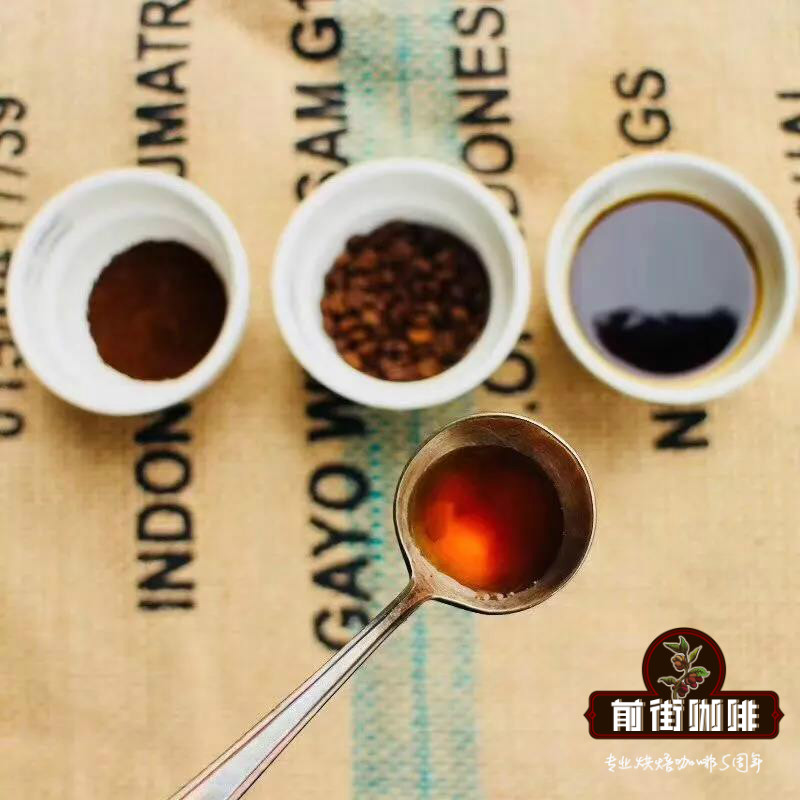The truth about decaffeinated coffee is that decaffeinated coffee is really better than decaffeinated coffee.

Professional coffee knowledge exchange more coffee bean information please follow the coffee workshop (Wechat official account cafe_style)
Many people drink decaffeinated coffee to avoid sleepless nights. But is decaffeinated coffee really decaffeinated?
What's the difference between "decaffeinated" and "natural decaffeinated"? Is it safe for chemicals to remove caffeine from coffee? First of all, you need to understand what decaf coffee is.
The US FDA stipulates that decaffeinated coffee must contain less than 97 per cent of the average caffeine content. So decaffeinated coffee still contains caffeine, but very little. And different coffee beans have different caffeine.
Coffee beans are usually divided into robusta beans and Arabica beans. Robusta beans usually contain twice as much caffeine as Arabica beans, so robusta beans are mostly used to make instant coffee. Starbucks will proudly claim to use Arabica beans. After removing 97% caffeine, robusta beans will have more caffeine than Arabica beans, so there will be great differences between brands.
FDA doesn't define decaffeinated coffee in terms of caffeine content, so if you're looking for decaffeinated coffee, be sure to pay attention to what kind of beans you're buying.
In New York, nutritionist Marella Bella founded the Nutrition and healthy Diet consultation Center. She thinks caffeine will affect you and make you feel nervous, and it may affect other factors, such as diet and daily life. She stressed that there is no such thing as decaffeinated coffee. Decaffeinated drinks should be non-caffeinated, and neither decaffeinated coffee nor non-herbal tea should be labeled decaffeinated. So, how to remove caffeine from coffee? When caffeine is removed from coffee or raw beans, it goes through a lot of processes, which will affect the production time of raw coffee beans, which usually takes twice as long to process ordinary coffee beans.
The first decaffeinated method, invented in the early 1900s and repeatedly washed with the aid of chemical benzene, is no longer in use because it is a known carcinogen. Nowadays, like red wine, coffee also pays attention to flavor, and the process of decaffeination will affect the quality and flavor of coffee beans. Many manufacturers use chloromethane to remove caffeine. The other two methods are in natural growth, eliminating the plant hormone ethyl acetate or carbon dioxide in caffeine, which uses no chemicals, just pure water. The process of using carbon dioxide and water in the process is considered to be a natural process and the only method that has been organically certified. Although organic coffee is becoming more and more popular, it is still difficult to find in many supermarkets.
Chloromethane, if used directly in food, is a possible carcinogen, chemically decaffeinated coffee, most of which are mixed with concentrations of 1 ppm or less, but FDA regulations stipulate that less than 10 ppm is safe. At the same time, coffee producers are becoming more and more sensitive to consumer concerns about additives. Caribou Coffee uses decaf in an anhydrous process.
In many cases, choosing decaffeinated coffee may not be that healthy, because the substances that may be left in the decaffeinated process will affect your health. in fact, adults only need to consume no more than 400 milligrams of caffeine a day. That's good for your body.
Important Notice :
前街咖啡 FrontStreet Coffee has moved to new addredd:
FrontStreet Coffee Address: 315,Donghua East Road,GuangZhou
Tel:020 38364473
- Prev

The higher the coffee tree is, the harder the coffee beans will be. What's their flavor?
Professional coffee knowledge exchange more coffee bean information Please pay attention to the coffee workshop (Wechat official account cafe_style) Coffee raw beans are generally graded according to raw bean size, defect rate and altitude. The size and defect rate of raw beans are easy to understand, but many people don't quite understand. Why do some producing areas use the altitude of coffee beans as the basis for grading? many coffee sellers also boast of their own.
- Next

Why is organic coffee more expensive than regular coffee?
Professional coffee knowledge exchange more coffee bean information Please follow Coffee Workshop (Wechat official account cafe_style) in many parts of the world, growers use pesticides to control the growth of coffee pests, and moist and foggy coffee at high elevations are often more vulnerable to pests, so growers often use insecticide treatments. Organic coffee is grown without any insecticides, and other
Related
- Beginners will see the "Coffee pull flower" guide!
- What is the difference between ice blog purified milk and ordinary milk coffee?
- Why is the Philippines the largest producer of crops in Liberia?
- For coffee extraction, should the fine powder be retained?
- How does extracted espresso fill pressed powder? How much strength does it take to press the powder?
- How to make jasmine cold extract coffee? Is the jasmine + latte good?
- Will this little toy really make the coffee taste better? How does Lily Drip affect coffee extraction?
- Will the action of slapping the filter cup also affect coffee extraction?
- What's the difference between powder-to-water ratio and powder-to-liquid ratio?
- What is the Ethiopian local species? What does it have to do with Heirloom native species?

